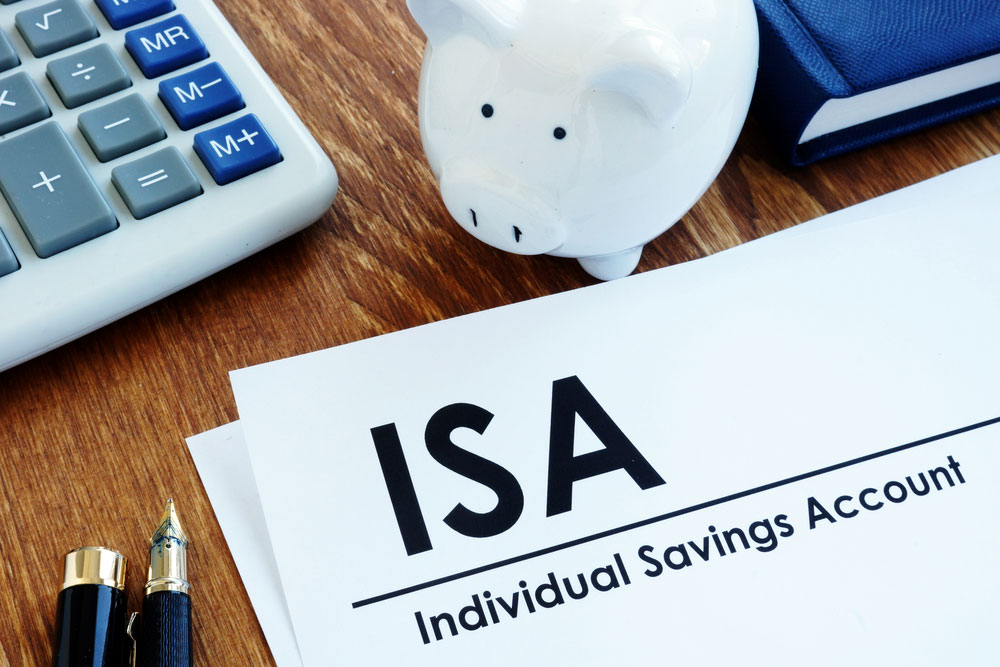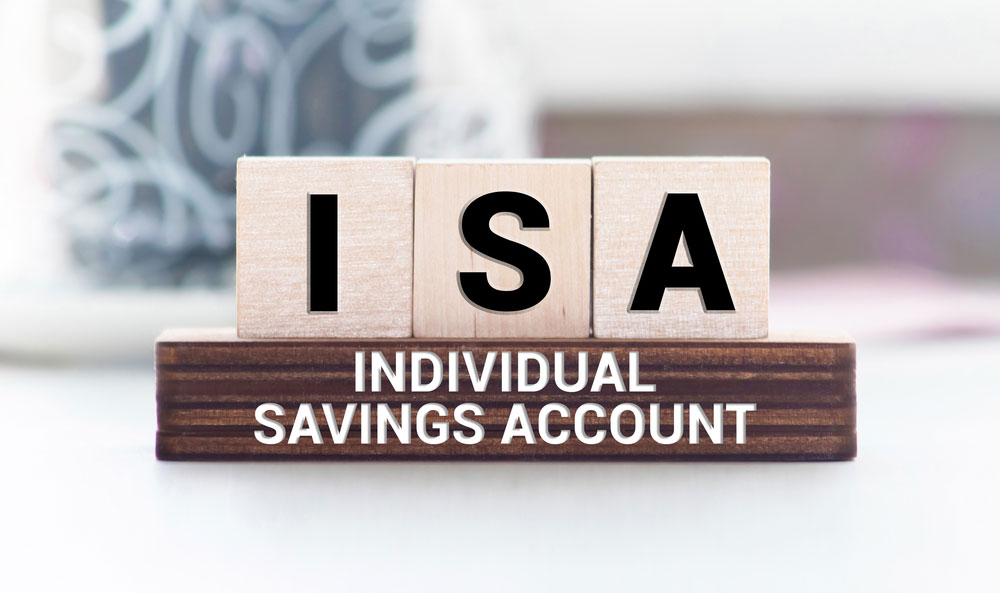What’s New with (ISAs) in the 2024/25 Tax Year?
Welcome to our Guide to Individual Savings Accounts. This guide explains the changes to Individual Savings Accounts (ISAs) for the 2024/25 tax year. Individual Savings Accounts (ISAs) have long been a favourite tool for tax-efficient saving and investing, and the new tax year brings with it some significant changes It’s essential to understand these updates to make the most of your ISA opportunities for 2024/25.
ISAs offer a versatile and tax-efficient way to save for the future, whether for yourself, your children, or your grandchildren. Now that we have entered the new financial year, significant changes have been introduced to ISAs.
Flexible Rules for Savers
One of the most notable changes is the newfound flexibility for savers. As of April 6th, individuals can now open multiple accounts of the same type of ISA within a single tax year, provided they don’t exceed the annual ISA limit. This departure from previous restrictions allows for a more tailored approach to savings strategies.
Partial Transfers and the Proposed British ISA
In addition to increased flexibility, partial transfers of funds between different types of ISA’s are now permitted. This enhancement offers savers greater control over their investment portfolios, enabling them to adapt to changing financial goals. So you can now move some of your money from one type of ISA to another, giving you more control over how you save. For example, you can move money from your cash ISA to a stocks and shares’ ISA.
Additionally, there’s buzz around the proposed new type of ISA called the ‘British ISA,’ which targets investments in UK-based companies on the UK stock market. This special ISA would allow you to invest up to £5,000 in UK-based companies on the UK stock market. It’s like giving your savings a boost while supporting British businesses.
The Chancellor mentioned this idea during the Spring Budget, but it’s still being talked about. They’re asking for people’s opinions until June 6th. If it goes ahead, it could encourage more people to invest in UK companies, which would be good for the economy. Whilst still in the consultation phase, this initiative could provide a boost for domestic investment opportunities.
Exploring ISA Options
ISAs come in various forms, each catering to different financial objectives and risk appetites. From the stability of Cash ISAs to the growth potential of Stocks & Shares ISAs, there’s a suitable option for every investor. Cash ISAs offer tax-efficient savings with the option of easy access or fixed-rate rewards, while Stocks & Shares ISAs present opportunities for higher returns, albeit with higher risk.
The tax year 2024/25 also sees continued support for specialised ISAs like the Lifetime ISA and Junior ISA. Designed to encourage long-term saving, the Lifetime ISA offers a government bonus for first-time home buyers or retirement savings. Junior ISAs, on the other hand, provide a means for parents and guardians to save on behalf of children, fostering financial independence from an early age. Here is a brief breakdown:
Cash ISAs
Cash ISAs are a safe bet for people who don’t like taking risks with their savings. They’re like a safe place to stash your cash, and they’re tax efficient. You can get different types of Cash ISAs. Some let you take out your money whenever you want, while others give you a better interest rate if you leave your money in for a certain amount of time.
Even though Cash ISAs might not always give you the highest interest rates, they’re still worth it because they help you save on taxes. The interest you earn in a Cash ISA doesn’t count towards your personal savings allowance, which means you can grow your savings without worrying about paying extra tax on the money you invested in the Cash ISA. This is especially useful for people who pay a lot of tax or have a lot of money saved up. So, even though Cash ISAs might not offer the highest interest rates, they’re still a good option for saving money.
Stocks & Shares ISAs
Stocks & Shares ISAs, also known as ‘investment ISAs,’ let you spread your money across lots of different investments, like stocks, bonds, and funds. But be warned – the value of your investments can go up and down, so there’s a risk involved. However, history shows that, over time, the stock market can give better returns than just leaving your money in a regular savings account.
With a Stocks & Shares ISA, you can pick different investment funds managed by professionals. This helps spread the risk because your money is mixed in with other peoples investments. Plus, any money you make from your Stocks & Shares ISA – whether it’s from selling investments or getting dividends – is tax efficient. And the best part? You don’t need to fill in any extra tax forms – it’s all taken care of for you. That’s why Stocks & Shares ISAs are a popular choice for beginners who want to start investing.
Lifetime ISAs
Lifetime ISAs are a special way to save money if you’re aged between 18 and 40. It’s a good deal because for every pound you put in, the government adds an extra 25p for free, and you don’t pay tax on it. You can save up to £4,000 every year, which means you could get a bonus of up to £1,000 annually.
You can use the money in a Lifetime ISA to buy your first home if it costs £450,000 or less, or you can keep it for when you retire, kind of like a pension. When you turn 60, you can take out your money whenever you want to help with your retirement. But if you take it out before then, you’ll have to pay a 25% fee, so it’s best to keep it for the long term.
You can choose between a Cash Lifetime ISA or a Stocks & Shares Lifetime ISA. But there aren’t many places offering Cash ISAs in this category, so your options might be limited. And remember, the money you put into a Lifetime ISA counts towards your overall ISA limit of £20,000 a year.
Junior ISAs
Junior ISAs, also known as JISAs, are for kids under 18. This year, you can put up to £9,000 into a Junior ISA, either as cash or in stocks and shares. But you can’t touch the money until the child turns 18, at which point they get full control over the account.
When they’re 16, they can start managing the account themselves, which is great for teaching them about money from a young age. And just so you know, from this tax year onward, you have to be at least 18 to open a Cash ISA.
Considerations for ISA Transfers and Inheritance
ISA Transfers
ISA transfers let you move your money between different ISA providers and types. This can be handy if you want to switch from a cash ISA to a stocks and shares ISA, or the other way around. But not all providers allow transfers, so it’s important to check their rules.
It’s best to avoid taking money out or transferring it directly yourself, as this could affect the tax benefits of your ISA. Instead, you should start the transfer process with the new provider. They’ll handle everything for you, usually with a simple form to fill out.
ISAs and spousal inheritance
When someone you love passes away, dealing with their money can be a nightmare. But it’s important to know how Individual Savings Accounts (ISAs) work when they’re inherited. An ISA can be transferred to a surviving spouse without losing its tax-free benefits. Hopefully, this can be a small comfort during such a difficult time.
Seeking Professional Guidance
While this guide provides valuable insights into the changes affecting ISAs in the 2024/25 tax year, it’s essential to recognise that individual circumstances will vary. For personalised advice tailored to your financial goals and circumstances, consulting a professional financial advisor is recommended.
The new tax year brings both opportunities and challenges for ISA investors. By staying informed and leveraging the flexibility and diversity of ISA options available, savers can navigate the financial landscape with confidence and pursue their long-term financial objectives.
In the new tax year, there are good things and some challenges for people who invest in ISAs. But if you keep up to date and use the different types of ISAs wisely, you can manage your money well and work towards your long-term financial goals with confidence. We wish you all the best.
Disclaimer:
This guide is intended for general informational purposes only and does not constitute financial or legal advice tailored to your specific circumstances. You should not rely solely on the content herein, and it should not be interpreted as professional guidance. While every effort has been made to ensure the accuracy and timeliness of the information presented, we cannot guarantee its absolute precision at the time of receipt or its continuing validity in the future. No individual or entity should act upon this information without seeking appropriate professional advice specific to their situation. We accept no liability for any loss arising from actions or omissions taken in reliance on the content of this guide.
Taxation and Investment Risk:
Please be aware that thresholds, interest rates, and tax legislation are subject to change in subsequent Finance Acts. Tax levels, reliefs, and bases are liable to modification, and their impact depends on the individual circumstances of the investor. The value of investments can fluctuate, and there is a risk of losing capital. All figures provided are specific to the 2024/25 tax year unless otherwise stated.
Professional Advice:
For tailored financial or legal advice regarding your pension arrangements, it is highly advisable to seek professional guidance from a qualified financial investment advisor or solicitor.
Regulatory Statements
Equity Release
Equity Release plans are not right for everyone. And it is important that you fully consider your options and receive independent financial advice before making a decision. It is also important that, if you do decide to use an equity release product, you choose one that meets your needs.
Remember that taking an equity release plan is generally a long term option. However, there are flexible plans available that may fit your varying needs and some will allow you to repay in the future without penalties.
Buy to Let Mortgages
Some Buy to Let Mortgages are not regulated by the FCA.
Mortgages
YOUR HOME MAY BE REPOSSESSED IF YOU DO NOT KEEP UP REPAYMENTS ON YOUR MORTGAGE
Investments
All investments involve a degree of risk of some kind. This section describes some of the risks which could be relevant to the services we provide you. We may provide further risk information during the course of our services to you, as appropriate.
Our services relate to certain investments whose prices are dependent on fluctuations in the financial markets outside our control. Investments and the income from them may go down as well as up and you may get back less than the amount you invested. Past performance is not a guide to future performance.
True Advice Financial Services is a trading style of TA and SE Hollom Ltd. Which is an Appointed Representative of New Leaf Distribution Ltd. Which is authorised and regulated by the Financial Conduct Authority : Number 460421.
Registered Office : New Leaf Distribution Limited, 165 – 167 High Street, Rayleigh, Essex, SS6 7QA
- How to Invest in 2025 During Rising Inflation - May 22, 2025
- Confident Financial Planning - April 15, 2025
- Estate Planning Essentials to Protect Your Wealth - October 28, 2024

